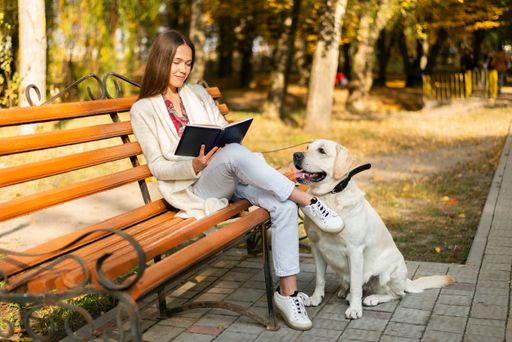Bringing home a new puppy can be an exciting and joyful experience. Puppies are adorable, and can be playful, and full of energy, but they can also be mischievous and destructive. Puppy-proofing your home is crucial to ensure your furry friend's safety and protect your belongings. Here is the ultimate guide to puppy-proofing your home.
Remove Potential Hazards
Puppies are naturally curious and love to explore their surroundings. However, this can also be dangerous if there are potential hazards present in your home. To ensure your puppy's safety, it's crucial to remove any potential hazards from their environment. This includes securing loose electrical cords, putting away sharp objects, and removing poisonous plants. Any medication or chemicals should be stored out of reach as well, as they can be extremely harmful if ingested by your puppy. Taking the time to identify and remove potential hazards from your home can help prevent accidents and keep your puppy safe as they explore and learn about their new surroundings. Remember, prevention is key when it comes to puppy-proofing your home.
Protecting your furniture
When it comes to protecting your furniture, it's important to provide your puppy with appropriate alternatives to chew on. This includes providing durable chew toys and bones, as well as keeping tempting objects such as shoes or socks out of reach. You may also consider using furniture covers, mats or slipcovers to protect your home from scratches or accidents. It's also a good idea to establish clear boundaries for your puppy and discourage them from jumping or climbing on furniture. Bitter spray is a non-toxic spray that makes objects taste unpleasant to your puppy, deterring them from chewing on them. This can be a helpful tool in preventing your puppy from causing damage or ingesting harmful objects.
Secure Your Trash
Puppies are notorious for their love of digging through the trash, but this can pose serious health risks. Rotting food can make your puppy sick, and sharp objects can cause serious injury. To prevent this, it's important to secure your trash in a lidded container or locked cabinet. Not only will this keep your puppy safe, but it will also prevent any unwanted messes in your home. It's also a good idea to establish clear rules and boundaries with your puppy, teaching them that the trash is off-limits. Consistency and positive reinforcement can go a long way in helping your puppy understand what behaviours are acceptable and which are not.
Block Off Restricted Areas
While it's important to give your new puppy space to explore and play, there are certain areas of your home that may need to be off-limits. For instance, an office or bedroom may contain hazards or valuable items that you don't want your puppy to access. To prevent your puppy from entering these areas, consider using baby gates or closed doors. This not only keeps your puppy safe but also prevents any damage to your belongings. If you have a multi-level home, it's also a good idea to use a baby gate at the top of the stairs to prevent your puppy from falling. Remember to be consistent in enforcing these boundaries with your puppy and provide them with plenty of appropriate toys and activities to keep them occupied and happy.
Keep Your Puppy Active
Puppies have boundless energy and it's important to channel this energy into positive activities to prevent destructive behaviours. Regular exercise is an essential component of a puppy's daily routine. Take your puppy for daily walks or engage in other physical activities such as playing fetch or tug-of-war to burn off excess energy. Physical activity not only helps your puppy stay healthy and maintain a healthy weight, but it also promotes socialisation and cognitive development. During walks or playtime, your puppy will encounter new people, smells, and experiences, which can help build their confidence and reduce anxiety.
Be Patient
Puppy-proofing your home and training your puppy can be a long and challenging process. Be patient with your puppy and yourself. Remember that your puppy is still learning and needs time to adjust to their new environment. With patience and consistency, you and your puppy can happily settle in without having to rejig your whole life!



















